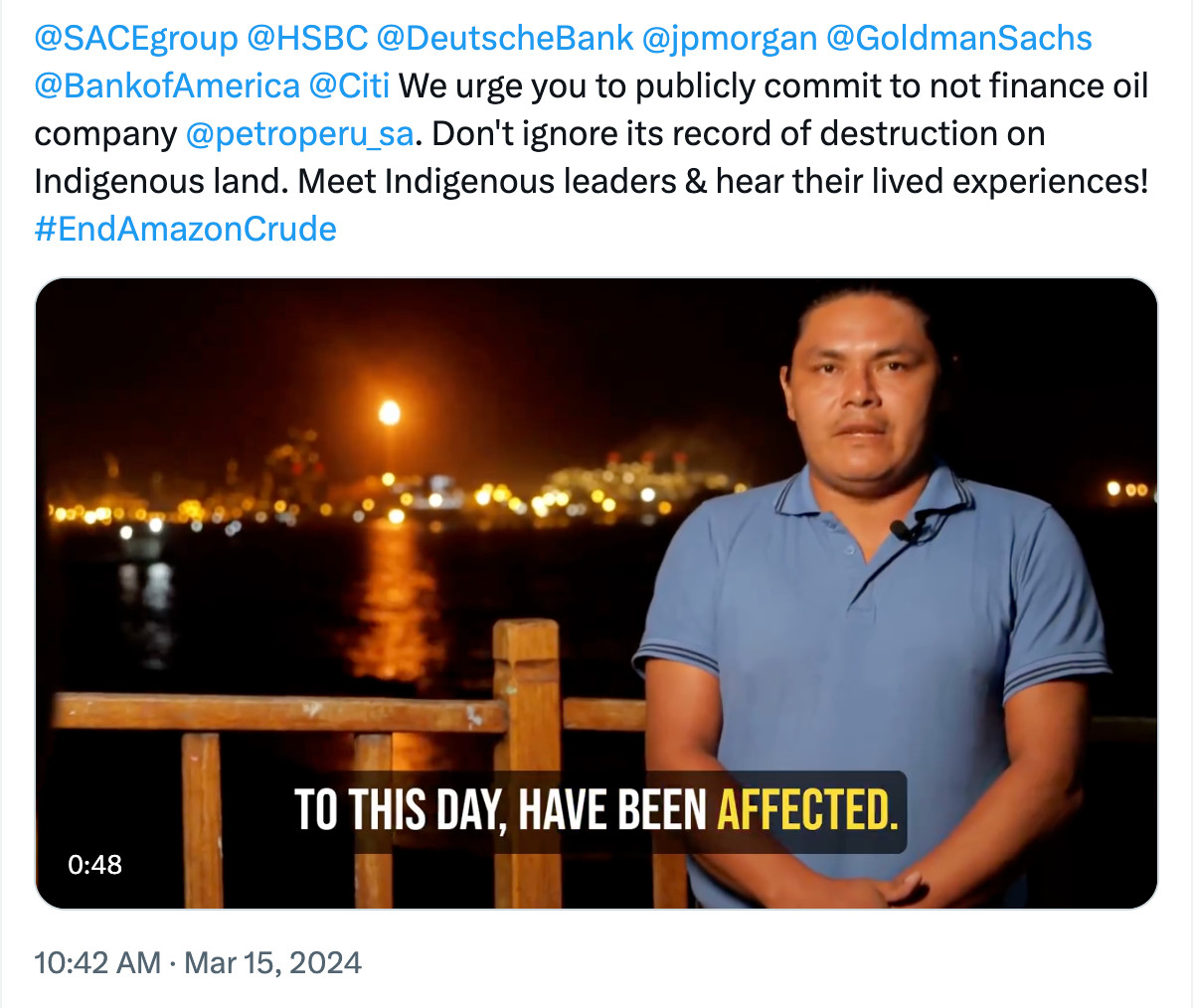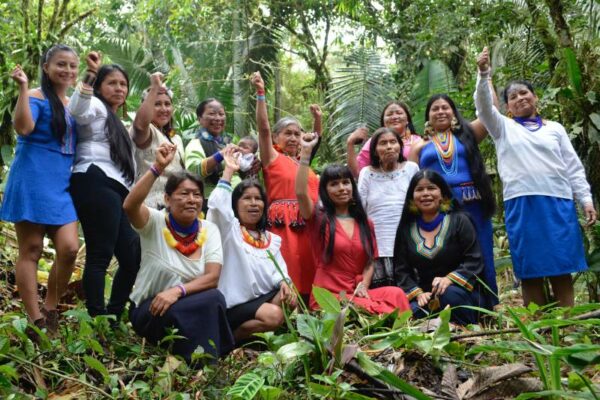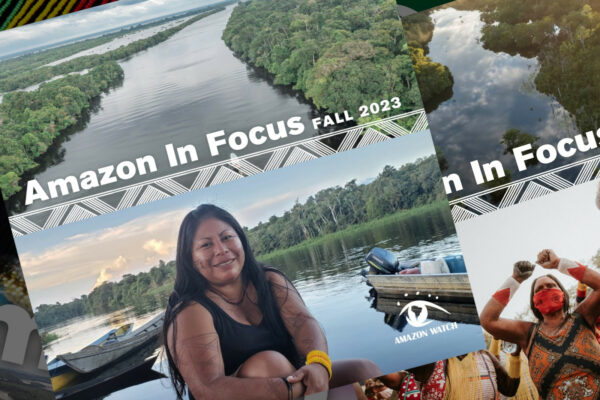Autonomous Indigenous nations of the Peruvian Amazon have created an alliance with fishing communities of the north Peruvian coast to denounce oil exploration and exploitation on their territories and call for no new financing of Petroperú.
Join in solidarity with the Indigenous Wampís, Achuar, and Chapra nations, who are traveling to New York to meet with bank representatives this week! Send an email to bank executives supporting their demands and a public commitment to end new financing of oil company Petroperú!
If you subscribe, we will keep you updated via our email newsletter, from which you can unsubscribe at any time. Any personal information collected on our website is protected by our Privacy Policy and Terms of Service.

Call them out on Twitter!
If you use X (Twitter), please also tweet this message to these institutions so that others can see what they’re up to!
Download this video and add it to your tweet for extra impact (use Alt+click to do this quickly from most browsers).
To: Multiple bank representatives, executives, and department heads at Citibank, JPMorgan Chase, and Goldman Sachs
Subject: Amazonian Indigenous nations repeat: Petroperú is financially risky
Financially supporting Petroperú and the wider Peruvian oil industry poses immense financial, governance, environmental, social, legal, and climate risks.
These challenges range from internal issues, such as its governance instability, accusations of corruption, and weakened financial position. It also faces external pressures from growing possibility of litigation and growing public opposition to its activities in sensitive areas such as the Peruvian Amazon and the north Peruvian coast.
Petroperú’s operations also pose an existential threat to the climate, as it lacks a credible transition plan and now seeks to exploit new oil blocks.
Based on these issues, we provide the following recommendations:
- Financial institutions must not provide new financial support for Petroperú, as its Talara Refinery is a driver of oil production in the Amazon and the company maintains intentions to expand drilling in Block 64 and Block 192,85 which will serve as major risks for potentially affected communities, the environment and the climate. This financing includes, but is not limited to, direct and indirect financing and lending by commercial banks, policy underwriting by insurers and reinsurers, and investment support from institutional investors.
- Financial institutions must abstain from any financial support to Petroperú or any other company, which seeks to exploit Block 64, for its failure to comply with FPIC for the Chapra, Wampís, and Achuar peoples, and the enormous risks such a project would present to the Amazon.
- Financial institutions should adopt and implement policies that recognize and are guided by international standards on FPIC as outlined in the UNDRIP and ILO Convention 169, and ruled on by the Interamerican Court of Human Rights. Clients that have violated Indigenous rights, such as FPIC, and have not engaged in adequate redress mechanisms should not receive any financial support.
- Financial institutions must implement a transparent due diligence framework and robust grievance mechanisms to assess the direct and indirect impacts of financing and lending activities on the rights of Indigenous Peoples. In the case of the Indigenous Peoples impacted by Petroperú’s plans; demands by Indigenous communities may not be easily communicated to financial institutions. Clients may obfuscate or downplay opposition to planned operations.
- Financial institutions must abstain from direct and indirect financial support that leads to new oil exploration and exploitation in the Amazon, as such projects are incompatible with the international scientific consensus and policy frameworks on climate mitigation.
We urge you to heed the warnings of these Indigenous nations, for the good of your institution and our shared planet!
[Your name]











